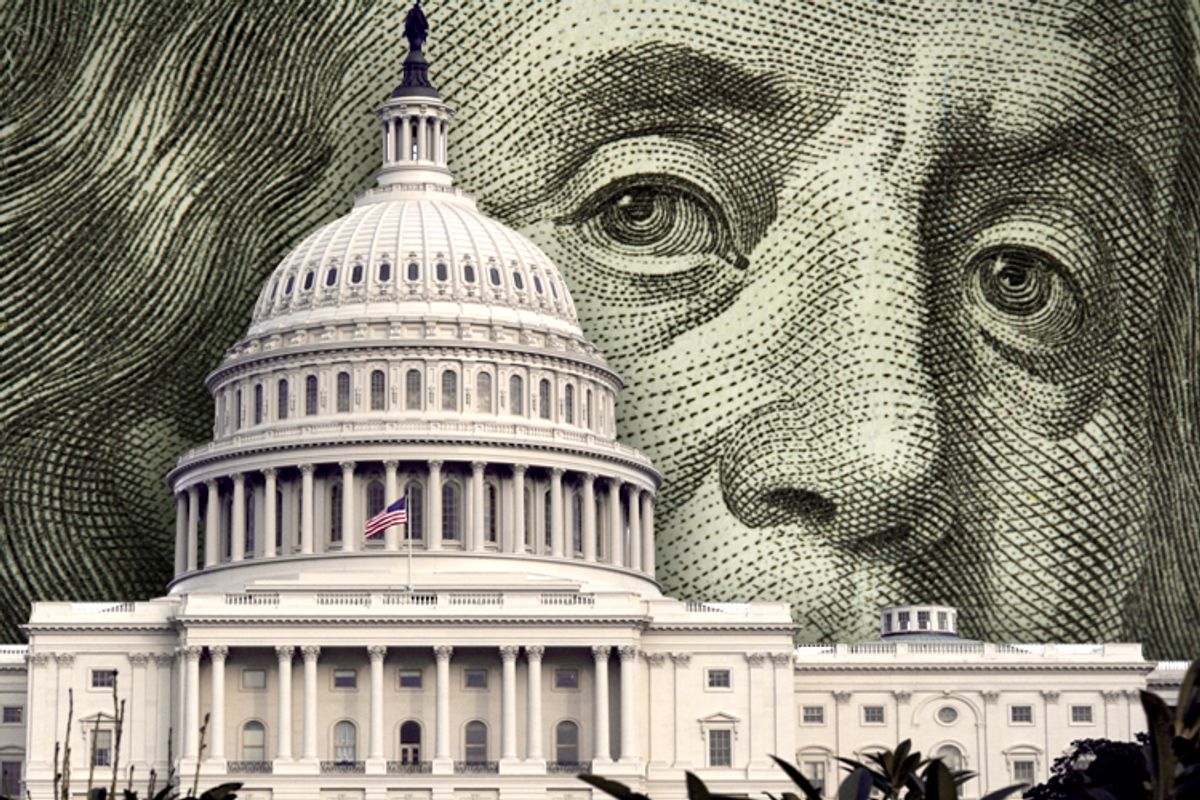Forty-nine companies netted over $81 billion in federal government contracts last year despite drawing close to 1,800 total Department of Labor enforcement actions over six years -- and paying out nearly $200 million in penalties and back wages – according to a new report released by Senate Democrats.
“These findings are deeply troubling: almost thirty percent of companies with a significant violation of basic labor laws are federal contractors, and tens of thousands of American workers are paying the price – through shortchanged paychecks, with their safety, or, sadly, with their lives,” Sen. Tom Harkin, D-Iowa, said in a statement. Harkin chairs the Senate’s Health, Education, Labor and Pensions committee, which released the report following what it called a year-long investigation. Harkin charged that the current system for federal contracting “has virtually no reliable tools in place to ensure that these violations of the law are ever considered before a contract is awarded.”
"Many of the most flagrant violators of workplace safety and wage laws are also recipients of large federal contracts," states the HELP report, “Acting Responsibly? Federal Contractors Frequently Put Workers’ Lives and Livelihoods at Risk.”
The authors contend that an existing database created under the the Clean Contracting Act of 2008 fails to capture "many incidents of misconduct," citing examples including the deaths of a worker "swept into an industrial dryer" at Cintas Corp., two workers killed in an explosion at a ship company owned by ST Engineering Limited, and seven workers in the Anacortes, Wash., refinery of the Fortune 100 petroleum company Tesoro. The HELP report states that Tesoro "received $463 million in federal contracts in fiscal year 2012," and that the $2.4 million initial penalty safety assessed against it ranks -- along with initial penalties assessed against 17 other contractors -- among the largest assessed between 2007 and 2012. A 2010 report from the Government Accountability Office found that 15 contractors with citations for federal labor law violations had collectively received $6 billion in government contracts in fiscal 2009.
Asked about the report, Tesoro sent Salon a statement saying that a judge had dismissed the majority of the allegations against Tesoro in the case and the government was now seeking penalties of "less than $700,000 on the remaining claims." Citing an investigation report released by Tesoro in 2011, which the company noted union members participated in preparing, Tesoro stated that the HELP report was "incorrect" when it said that machinery involved in the explosion "had not been inspected for 12 years" and when it stated that the workers who died had been there "specifically to attempt to stop leaks of the volatile, flammable gas ..." Asked whether the company denied any wrongdoing by the company in the disaster, a spokesperson referred Salon to the same statement, which said, "To date, no violation of safety rules by Tesoro has been established." The United Steelworkers Union declined to comment on the episode on the grounds that it was the subject of ongoing litigation. Cintas, ST Engineering Limited and Sen. Harkin's office did not immediately respond to Monday afternoon inquiries.
The HELP report arrives amid increased scrutiny on the conditions under which a vast array of privately contracted workers do taxpayer-funded work. As I’ve reported, cleaning and concessions workers backed by the Service Employees International Union and allies have mounted a series of one-day strikes at D.C. federal buildings, aimed at compelling executive action to raise labor standards. While those efforts have been backed by some congressional Democrats, Congressional Progressive Caucus co-chair Raul Grijalva this month told Salon that their appeal to the White House had received “no response.” After previously giving President Obama a “benefit of the doubt moment,” Grijalva pledged his caucus would become “much more public and much more insistent” in pressing him on the issue.
Harkin released the report in a speech last week hosted by the Center for American Action Fund, whose chairman, former Clinton Chief of Staff John Podesta, led Obama’s 2008 transition team and was just tapped to return to the White House as a counselor to the president. In 2009 testimony, Podesta argued before Congress that “improving accountability for how contractors treat their workers and encouraging companies to pay decent wages and provide benefits can support key aspects of the president’s agenda …” (The New York Times reported last week that Podesta served on an advisory board to the contractor Gryphon Technologies, and that the donors to the Center for American Progress, which Podesta founded, include the contractor Northrop Grumman.) While the New York Times reported in 2010 that the White House was planning to implement a "high road" contracting regime that would disadvantage companies with worse environmental or labor records, by 2011 a nominee for the Office of Management and Budget testified that there were no such plans in the works.
The HELP report identifies a series of executive orders and agency actions the Obama administration could take to raise standards for transparency and compliance in the contracting process. Harkin has also repeatedly urged President Obama to wield executive authority to ban anti-LGBT discrimination by federal contractors -- so far without success. Last month, Harkin told Salon that the Senate’s passage of an employment discrimination ban “indicates to the president he has nothing to fear.”

Shares